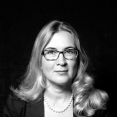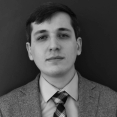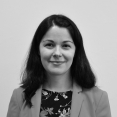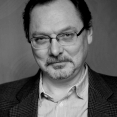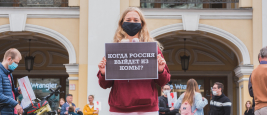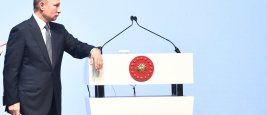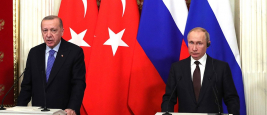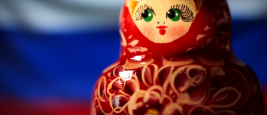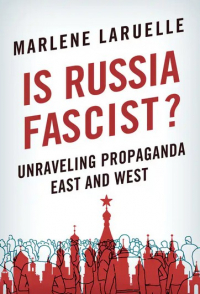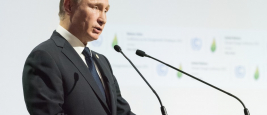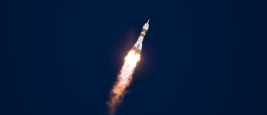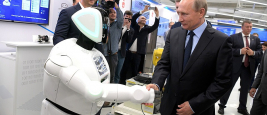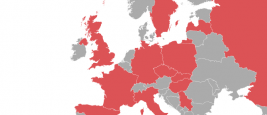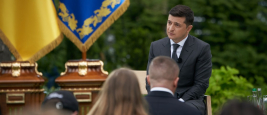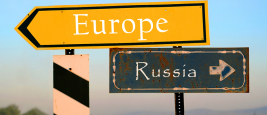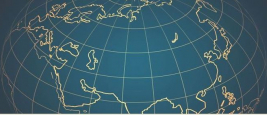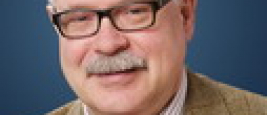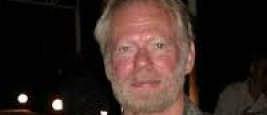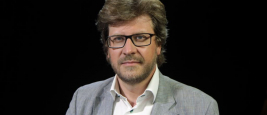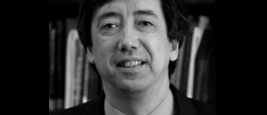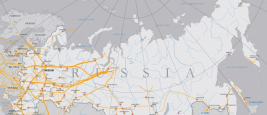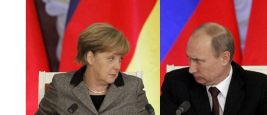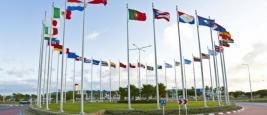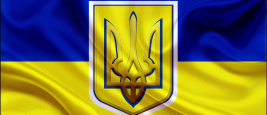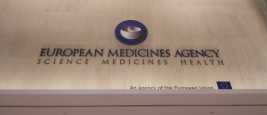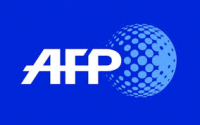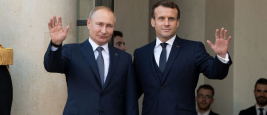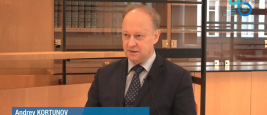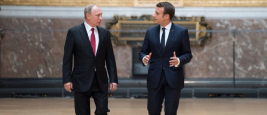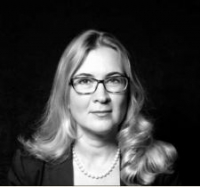Year after year, Russian liberal politicians and experts have been promising radical changes in Russia’s economics and politics, which, they believed, would lead to the collapse of the Putin regime.

Russia / Eurasia

Post-Soviet Russia has gradually asserted itself as an imperial and anti-Western power, representing a threat to the independence of its Eurasian neighbors, as well as to the post-Cold War international order. The Kremlin’s invasion of Ukraine on February 24, 2022 is the culmination of this behavior, with both regional and global consequences. Now cut off and isolated from the Euro-Atlantic space, Russia is seeking to deepen its partnership with China and to turn towards non-Western worlds, especially in Asia and Africa. In the Eurasian space, historically dominated by Russia, the war amplifies centrifugal tendencies. The speed and depth of the transformations underway require constant and precise monitoring of the internal and external policies of the countries in the area.
Founded in 2005 at Ifri, the Russia/Eurasia Center produces research and organizes debates on Russia, Eastern Europe, Central Asia and the South Caucasus. Its objective is to understand and anticipate the evolution of this complex and rapidly changing region in order to enrich the public debate in France and Europe, and to assist in strategic, political and economic decision-making. Over time, the Russia/Eurasia Center has developed a network of contacts from institutions and civil society in the countries of the Eurasian space, and has established multiple partnerships with research institutes in Europe and around the world.
The digital collection Russia.Eurasia.Visions (formerly Russia.Nei.Visions), published by the Center, has become a reference point, with articles published in three languages (French, English and Russian). Relying on a network of leading experts and promising young researchers, it offers original analyses intended for public and private decision-makers, researchers, as well as for a wider public interested in the area.
Director of Ifri's Russia / Eurasia Center
...Research Fellow, Russia / Eurasia Center
...Project Officer, Russia / Eurasia Center
Associate Research Fellow, Russia / Eurasia Center
...Associate Research Fellow, Russia / Eurasia Center
...Associate Fellow, Russia / Eurasia and Geopolitics of Technologies Centers
...Associate Fellow, Russia / Eurasia Center
...This report analyses Western-Russian relations and proposes a way forward for conducting dialogue with Russia. It offers an analysis of Russia’s relations with NATO and the EU, an overview of the bilateral relations of various Western countries with Russia, a glimpse of China’s role, and an...
The extraordinarily troublesome year 2020 tested many international institutions and bilateral ties, but few experienced sharper challenges than the complex relations between Russia and Turkey, which have a strong impact on crisis developments in Europe’s immediate neighborhood.
This paper argues that Russia’s soft power should be understood as a niche soft power, microtargeting some specific audiences based on four particularisms:
The charge of "fascism" has become a strategic narrative of the current world order.
Russia is an outlier in the international consensus on climate change.
With the advent of New Space, Russia is engaged in a race against time to preserve one of its major industrial assets.
When analyzing the global state of play around artificial intelligence (AI), Russia so far looks like an “outsider” compared to the two technological leaders, the United States and China.
In September and October 2020, the Sinophone Borderlands project at Palacký University Olomouc conducted a wide-scale survey of public opinion on China in 13 European countries. The polled countries include: Czechia, France, Germany, Hungary, Italy, Latvia, Poland, Russia, Serbia, Slovakia,...
The election of Volodymyr Zelensky as president of Ukraine created very high expectations in the society.
Post-European Russia: A New Stage of Transformation?
The Ukrainian crisis buried 25 years of attempts by Russia to become part of an "extended West" or "Wider Europe". Despite obvious differences between Russian presidents since Boris Yeltsin, the conceptual course in favour of "integration" with Europe remained unchallenged, although...
Shaping Eurasia: What Convergence between China's New Silk Road and the Eurasian Union?
As geo-strategic and geo-economic balances evolve across the Eurasian continent, two initiatives – the Chinese-led “Silk Road Economic Belt” and the Eurasian Economic Union – promise to shape the region’s emerging geo-political...
Russia's “Pivot” to Asia: Assessment and Strategic Implications Roundtable - By personal and non-transferrable invitation
This event is dedicated to the Russia/NIS Centre Corporate supports. By personal invitation only.
A roundtable with Dmitri TRENIN, Director of the Carnegie Moscow Center
The Russia-US Relationship: from Cold War to Cold War II? Closed-Door Roundtable - By Personal and Non-Transferrable Invitation
A closed seminar organized by the Russia/NIS Centre, with Robert LEGVOLD, Marshall D. Shulman Professor Emeritus in the Department of Political Science at Columbia University
Russia’s Foreign Policy: Offensive or Defensive Stance? Closed-Door Seminar - By personal invitation
A closed seminar organized by the Russia/NIS Centre, with Fyodor LUKYANOV, Editor in Chief of the journal "Russia in Global Affairs", Chairman of Presidium of the Council on Foreign and Defense Policy (Moscow).
Russia’s International Positioning Les Mensuelles Ifri/Entreprises
These luncheon-debates are dedicated to corporate and individual benefactor members. By personal invitation only.
Myths of Russian Energy Policy : Gas Deal with China, South Stream and relations with the EU Closed Seminar
By personal invitation only
...
German-Russian economic and political relations after the Ukrainian crisis: What kind of partnership?
The Study Committee for Franco-German Relations (Cerfa) and the Russia/NIS Center at the French Institute of International Relations (Ifri) organize an informal meeting with Stephen Szabo, Executive Director of the Transatlantic Academy - GMF who has...
Russia : towards a new cold war ? The fifth conference Parliament - Ifri at the Assemblée nationale
7 april 2015 from 18:30 at 20:30
...
The Table of Ambassadors: lunch-debate with Oleg Shamshur, Ambassador of Ukraine to France
Debate chaired by Thierry de Montbrial, President, Ifri.
The European Union’s top drug regulator, whose approval is necessary for countries of the bloc to begin rolling out the coronavirus vaccine, has begun an investigation after it was hit by a cyberattack, the head of the agency said on Thursday.
Once a political novice, Belarusian opposition leader Svetlana Tikhanovskaya is joining Europe's diplomatic big leagues but risks undermining her own cause in the process, experts said.
French president’s ‘trust-building’ with Russian leader has failed
The poisoning of Russian opposition figure Alexei Navalny with the Novichok nerve agent has dealt a blow to French President Emmanuel Macron's strategy of rapprochement with Russia, which troubled some EU allies, analysts say.
Editor’s Note: This opinion piece was written based on the experience of Kyiv Post staff writer Anna Myroniuk, a native of Donetsk, on a trip to Paris at the invitation of the French Ministry of Foreign Affairs, which sponsored a visit by Ukrainian journalists in early February. In Paris, the...
Paris (AFP) - French President Emmanuel Macron senses an opportunity to bring Russia's Vladimir Putin back in from the cold and potentially help usher in peace in Ukraine, an ambitious -- and risky -- undertaking that Western allies might not welcome.
An interview with Andrey KORTUNOV, Director General of the Russian International Affairs Council (RIAC).
Russian social media trolls reportedly helped stoke the 'yellow vest' protests — France's largest demonstrations in years. DW talked to social media experts to find out more.
On Thursday, Russian President Vladimir Putin and his French counterpart Emmanuel Macron are due to hold a meeting in St. Petersburg.
French President Emmanuel Macron’s trip to Russia this week once threatened to split France from its European allies. Now it’s part of a wider European effort to tie President Vladimir Putin to the Iran nuclear accord.



